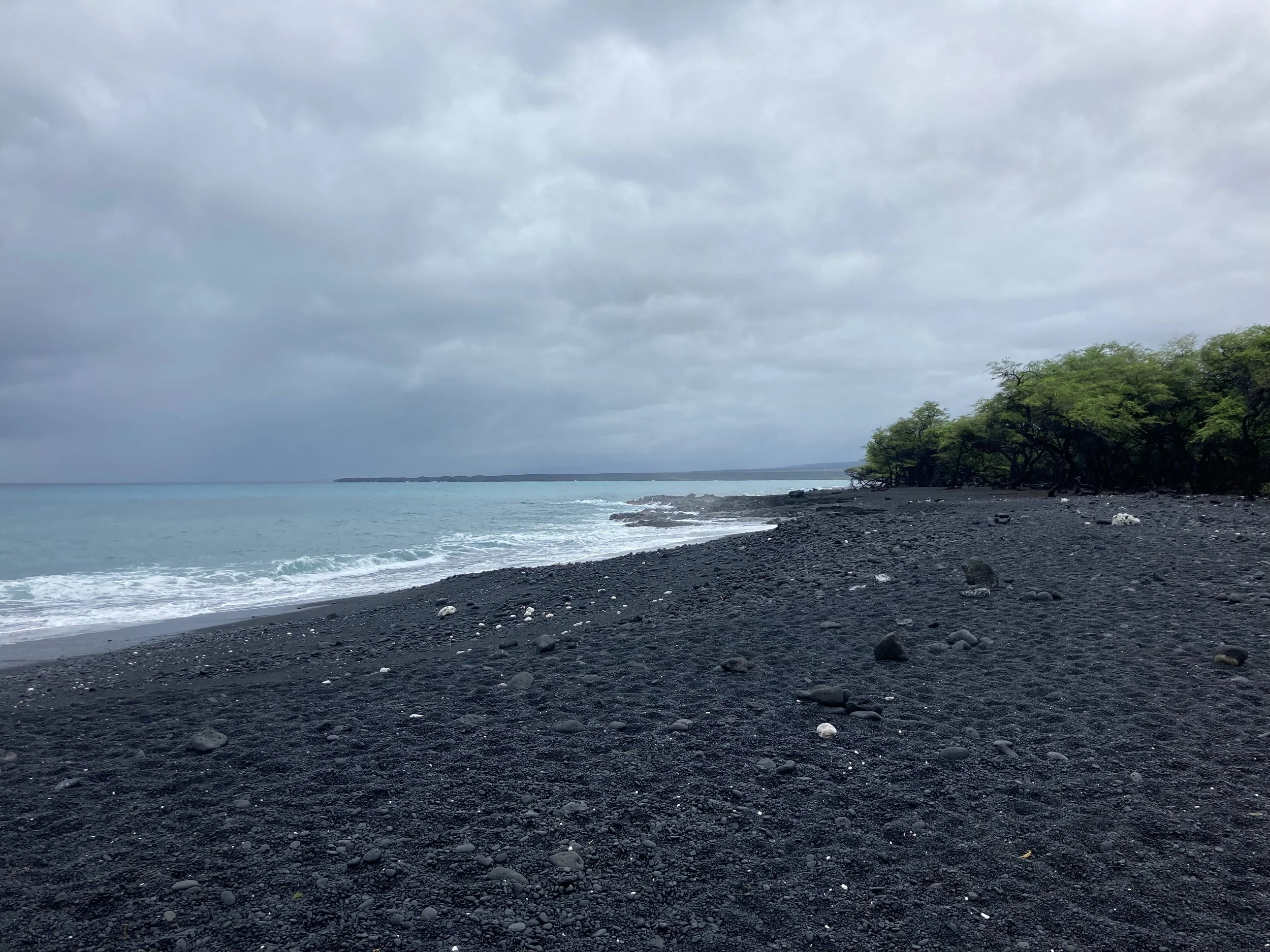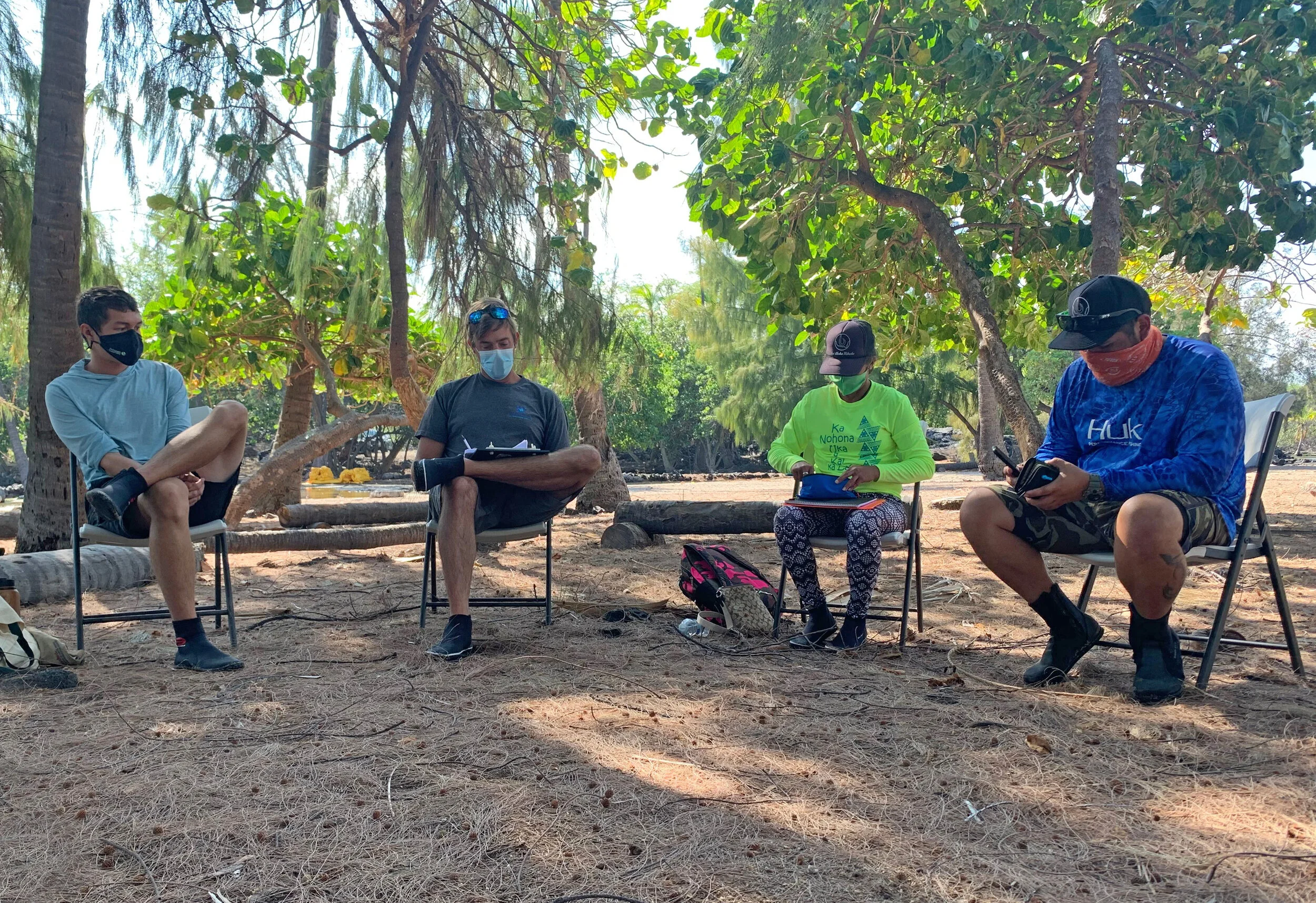UPCOMING:
PAST ALOHA FRIDAY LIVE
On Friday, July 31, starting at 9:30am, we collaborated with Rebecca Most, Marine Program Manager, with The Nature Conservancy on Hawaiʻi Island to learn about the structure of Ka Loko o Kīholo, the fishpond at Kīholo.
The kuapā, or fishpond wall, often consists of four specific types of rock, many of which have stood in their foundation for hundreds of years, to define the physical extent of the waters of the fishpond. We went live at Ka Loko o Kīholo to build upon the foundation of your fishpond kuapā knowledge with this interactive webinar!
THE NATURE CONSERVANCY’S WORK AT KIHOLO
Courtesy of The Nature Conservancy. Learn more by clicking here.
Kīholo is part of a coastal area once coveted by Hawaiian chiefs for its fisheries, fishponds and anchialine pools.
The royal fishpond at Kīholo stands as a testament to Native Hawaiian ingenuity—a highly refined aquaculture system that provided a sustainable supply of fish to the surrounding community for centuries.
In 2011, this historic cultural treasure was donated to TNC by Angus Mitchell, son of legendary hair care icon Paul Mitchell.
PHOTO: Dayva Keolanui
ECOLOGICAL SIGNIFICANCE
In Hawai‘i, fishpond estuaries function as a vital interface between land and coastal waters, providing habitat for native flora and fauna above and below their sheltered waters. At Kīholo, between three and five million gallons of submarine groundwater flows through the fishponds into coastal waters each day, boosting the productivity of nearshore coral reefs and reef fisheries.
Once prevalent along island shores, many fishponds were destroyed or fell into disrepair in recent decades. Fortunately, some survived, and today there is increased statewide interest in re-establishing these important cultural resources and enhancing local food security.
With the limited access to Kīholo due to COVID-19, we are bringing the mana'o of Kīholo to you live on Friday mornings online. Gather the ‘ohana around the computer or phone to join us as we share about Kīholo.
Ku‘ulei Keakealani with her father, Sonny, and other friends and volunteers, repairing Kīholo’s ancient rock walls. PHOTO: Cecile Walsh/TNC











Camping at the Kīholo State Park Reserve will be closed starting September 24, 2021 until further notice due to COVID-19 guidelines set by the State and/or County.